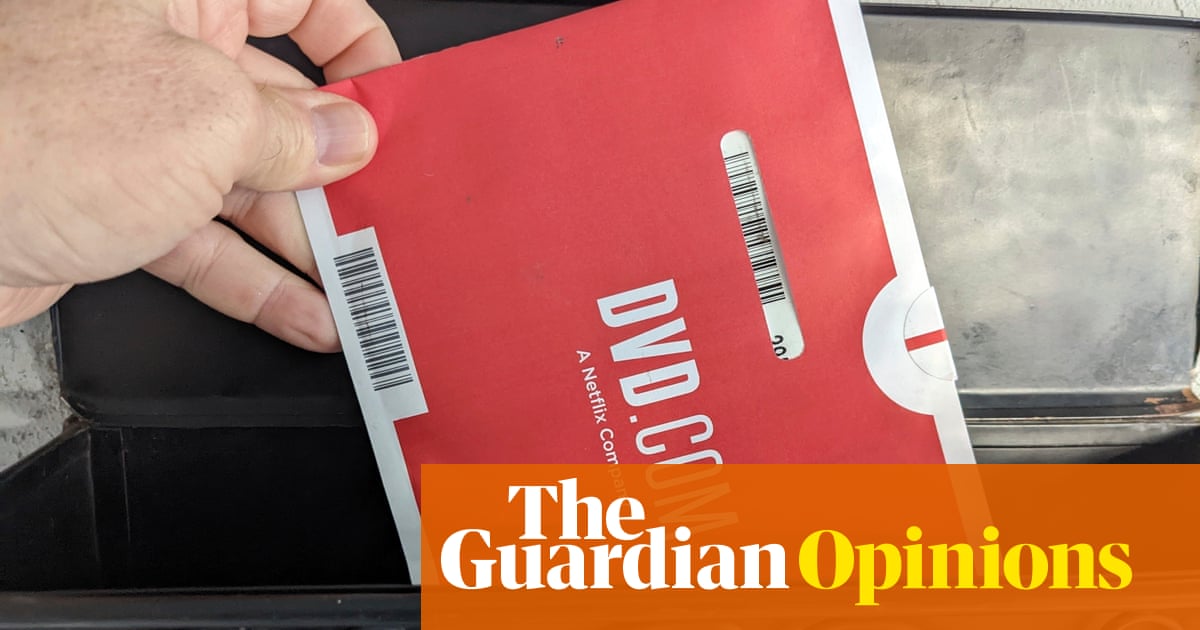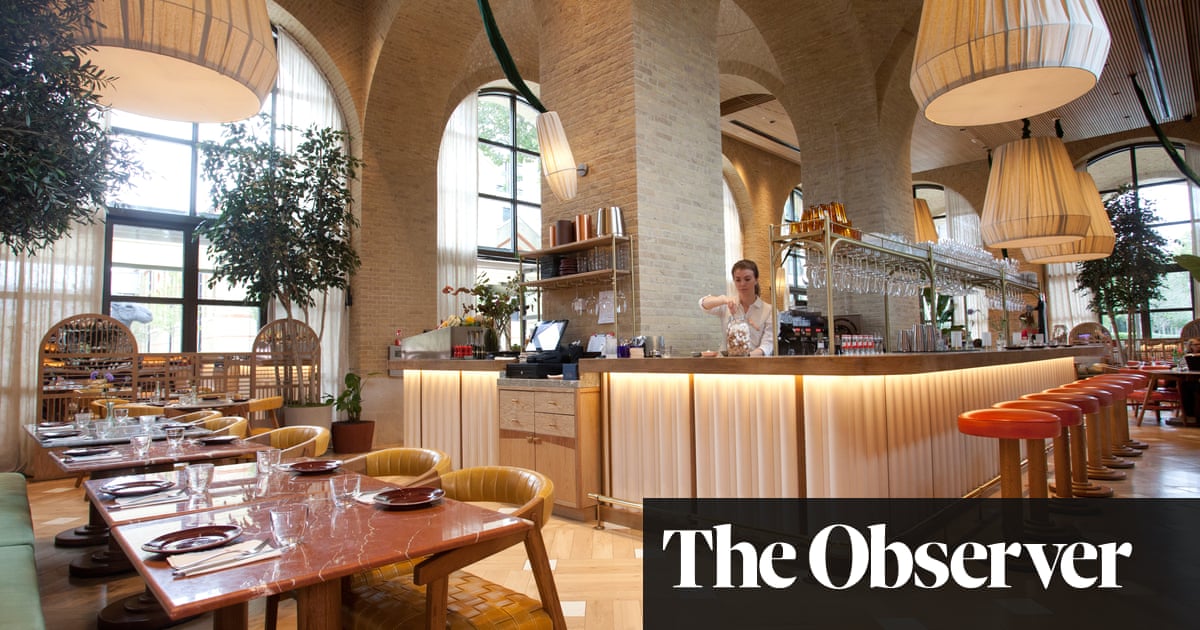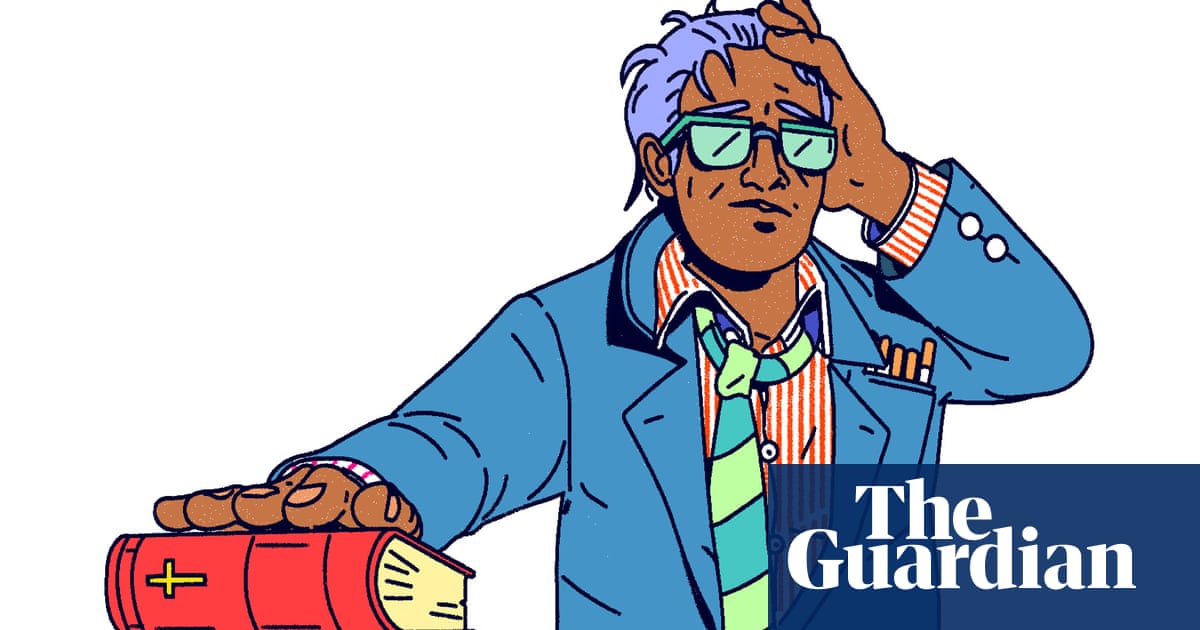
My father was not a big eater. “I’d be happy if I could just take a pill for my lunch,” he once told me, when I was eight or nine years old. I had already concluded that the adult world could be wilfully baffling, but this seemed unnecessarily provocative. It felt like a betrayal. As a child, an unfocused mess of fat-softened limbs and round edges, I knew that food was great. I loved bacon sandwiches on white bread and chocolate éclairs, and lived for evenings when my parents were short on time and dinner was the convenience of Findus Crispy Pancakes filled with delicious, if unidentifiable, brown matter.
Happily, my mother was not interested in getting her nutrition from a pill. Claire wanted both to feed and be fed. On Saturday lunchtimes, after they had done the weekly shop, my mother would fill the kitchen table with cold cuts and cheeses, and plates laid with slippery ribbons of smoked salmon in the brightest shade of orange. There would be dense fish balls, chopped liver topped with crumbled egg and bagels, for we were Jews through food. There was no space in our lives for God, but there was lots of space for lunch. It was a meal called “Fick and Porridge”, an adapted Spoonerism of pick and forage. It was one of those family jokes which isn’t funny to anybody else or even, eventually, to the family who coined it, but which sticks. What mattered was the intent expressed in the name: this was a knowingly relaxed lunch. It was also a form of open house to which certain close family friends knew they were always invited. And so they would come.
It was at our kitchen table that I learned the power of food and meal times. With a full plate in front of them, people would talk. They would drop onto their elbows and unload, both the good things and the bad, for my mother made her living as an agony aunt and was therefore considered both a good listener and a source of professional wisdom. There was no such thing as oversharing. Here, fuelled by those fish balls and bagels, they would be the most unselfconscious version of themselves. Oh, the stories they told. Sometimes we would talk about the food itself. I learned the correct way to build a cream cheese and smoked salmon bagel. (The cheese is not a butter substitute, to be spread thinly. It is a pedestal for the salmon and so to be piled high, like a litter of cushions.) We would, between mouthfuls, discuss whether this week’s chopped liver was as good as last week’s. I understood that this life of the table mattered.
My relationship with my dinner (and lunch) had come to define a very personal and intense part of me, which eventually presented challenges. In 1999, when I was offered the job of restaurant critic for the Observer, I was both publicly overjoyed and privately ashamed. Naturally, I was delighted by the prospect of being paid to do what I had always done on my own dime: to wander from restaurant to restaurant, deciding whether it was worth anyone’s time and money. But I also questioned whether making the personal so very public was seemly. I was 32 years old and finally established as a reporter, which I considered the most noble of the journalist’s crafts. I had moved from soft arts and feature writing to sharper-edged news reporting. I was covering race crime and social policy. I had spent weeks at the Old Bailey, sitting through the only war crimes trial ever to be held in the UK and, for a while, dug around in the workings of the intelligence services until the British government’s D-notice committee, which polices the line between the media and national security, had told my editor to rein me in. I wore these things as a badge of honour. And now?
Well now I was to write about the quality of a custard tart or the precision roasting of a loin of venison. I love custard tarts. I adore venison. But really? I told a friend, a highly respected restaurant critic of many years’ standing, that I would do the job for a few years, and then return to “proper” journalism.
I blush at the thought. What a staggeringly pompous thing to say, and how very wrong. All writers need a subject and, in the world of food and restaurants, I had found mine. The lesson I had learned as a child at the family kitchen table over Fick and Porridge, that food and eating can take you anywhere, was to be repeated in adulthood.
The subject of what we eat, I realised, is not just about how things taste. It is about memory and emotion, about love affairs and sex and the two together. It is about family and education; the environment and agriculture.
I remained a reporter, investigating the tangled politics and economics of food supply chains and national health policy.
It led to a stint as a reporter for The One Show on BBC One, for whom I made more than 150 short reports. I came to love those which showed us exactly where our food comes from; not just the touchy-feely, niche artisan stuff of farmhouses and kitchen tables – although there was a bit of that – but the complex, large-scale business of freezing a pea crop within 45 minutes, or harvesting carrots in the middle of the night, when it is good and cold. I skimmed across a silvery Morecambe Bay at dawn’s low tide to fish for brown shrimps, and stood in a tank with a massive farmed halibut in my arms, while it was milked for its sperm. It was a varied life.
It was also superb experience for what was to come next. I had long been an occasional feature writer for Observer Food Monthly. In 2010, I was asked if I would write a column for the front of OFM, called The Happy Eater. I got the idea immediately. It was to be a column about all aspects of food and eating written by a man with appetites. What’s more, it would be defined by a second column on the next page by the great American writer Ariel Leve. Hers would be called The Fussy Eater and would chronicle the life of someone who was somewhat more suspicious of what she was being fed.
We set out our respective stalls right from the start. Ariel’s first column was about how picky she could be when it came to eating sushi. Mine was about my fondness for the scuzziest of restaurants, the ones without velvet drapes and cut crystal. As I said: “Denying yourself an edible pleasure just because you couldn’t safely remove someone’s appendix in the room in which it was prepared, seems just plain foolish, not to mention self-defeating.” So it began.
Leve wrote wittily about American barbecue as if it were some dreadful cult; I wrote about how everything can be improved by the addition of bacon. She described her commitment to eating superfoods; I dismissed superfoods as anti-scientific cobblers. She wrote about how much she hated watching people eat in public; I wrote about the joys of dropping my lunch down my shirt.
It was a classy double act, but one with a shelf life. An enthusiast like me has endless directions in which to go. For us, the world is one big table, forever laid. It’s all about more and seconds and “yes please”. The fussy eater lives a more reduced life at that table. They’re simply not as interested. Within a couple of years, the fussy eater handed back her sterilised knife and fork. Leve had other great writing projects requiring her attention.
But the happy eater? I pushed on. For month after month.
It was during the first lockdown that I started looking back at these columns for thoughts on the complicated situation in which we now found ourselves. Alongside the critical issues of illness, loss and clinical emergency, questions around food and how we eat had become a recurring motif of the pandemic.
If it wasn’t empty shelves in supermarkets through suddenly increased demand for home cooking, it was the nature of being forced to eat together in a family unit, or alone when we didn’t have one. It was about the communal experiences in cafes and restaurants of which we had been robbed. It was about so much more than just how things tasted. Which was when the idea of collecting these columns together arose. They were all about the detailed pleasure and pain of the table.
It’s in the nature of a column written for a newspaper supplement that some are tagged to events in the news, but many more have ranged far and wide across the edible landscape in a less time-fixed manner.
There are essays on why the messiest of dishes can also be the ones that taste the best, or why the secret to flavour lies in giving ingredients lots of time together. There are a few columns about restaurants which, after all, is my specialist subject. I write about the dishes that professional kitchens do so well and those they do terribly badly. Lesson: you’ll probably make a better apple crumble at home than any chef could ever make in a restaurant.
I tackle the thorny issue of Christmas food from all angles. Take it from me: the world won’t end if you don’t make a dozen side dishes and, for God’s sake, don’t compare your Christmas to Nigella’s, because that way madness lies. I also allow myself to indulge in some bile and vitriol, because there are some things around food that make me grind my teeth and it’s far better for my molars that I get it all out there. The happy eater is not always happy. But sometimes he’s ecstatic.
The hospitality sector has been through a hellish 18 months. The combination of Brexit and the pandemic has challenged our food supply chain like never before. The climate crisis has raised serious questions about the sustainability of our agriculture sector. Too many people do not have access to enough good-quality food. All of these very real and important issues can make being enthusiastic about our food culture seem grossly inappropriate. I think that’s a mistake.
Yes, we need to tackle the issues. But we also need to acknowledge that eating and food is more than a bodily function. It is a significant part of the social dynamic that makes us who we are. It’s one of the beautiful things that makes us human. That deserves to be celebrated.
Chewing The Fat: Tasting Notes From a Greedy Life is published by Guardian Faber on 2 September. To order a copy for £4.99 go to guardianbookshop.com












